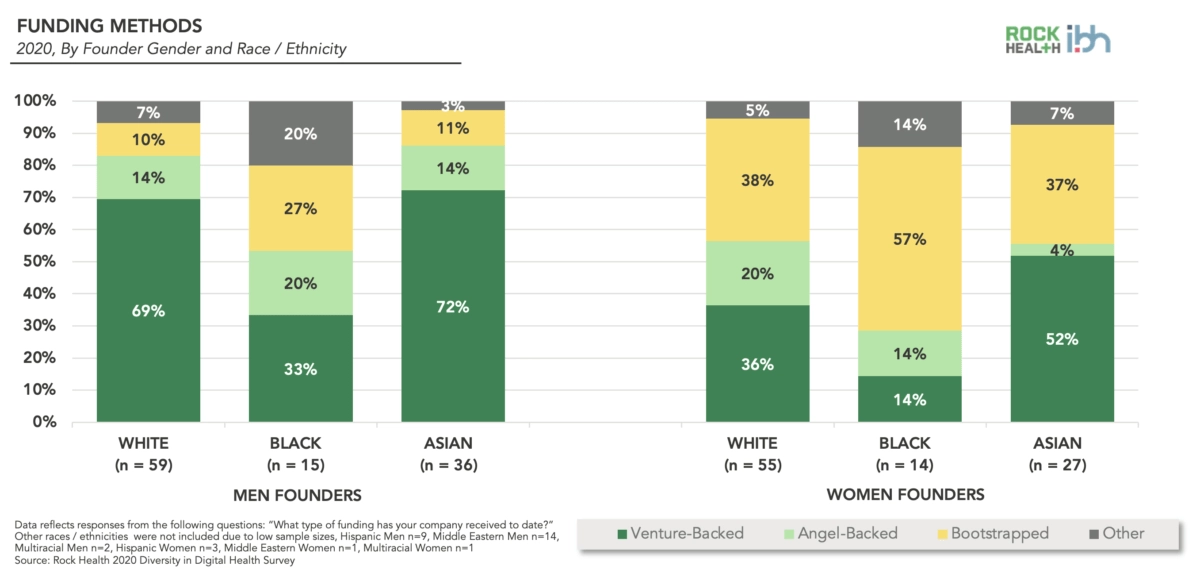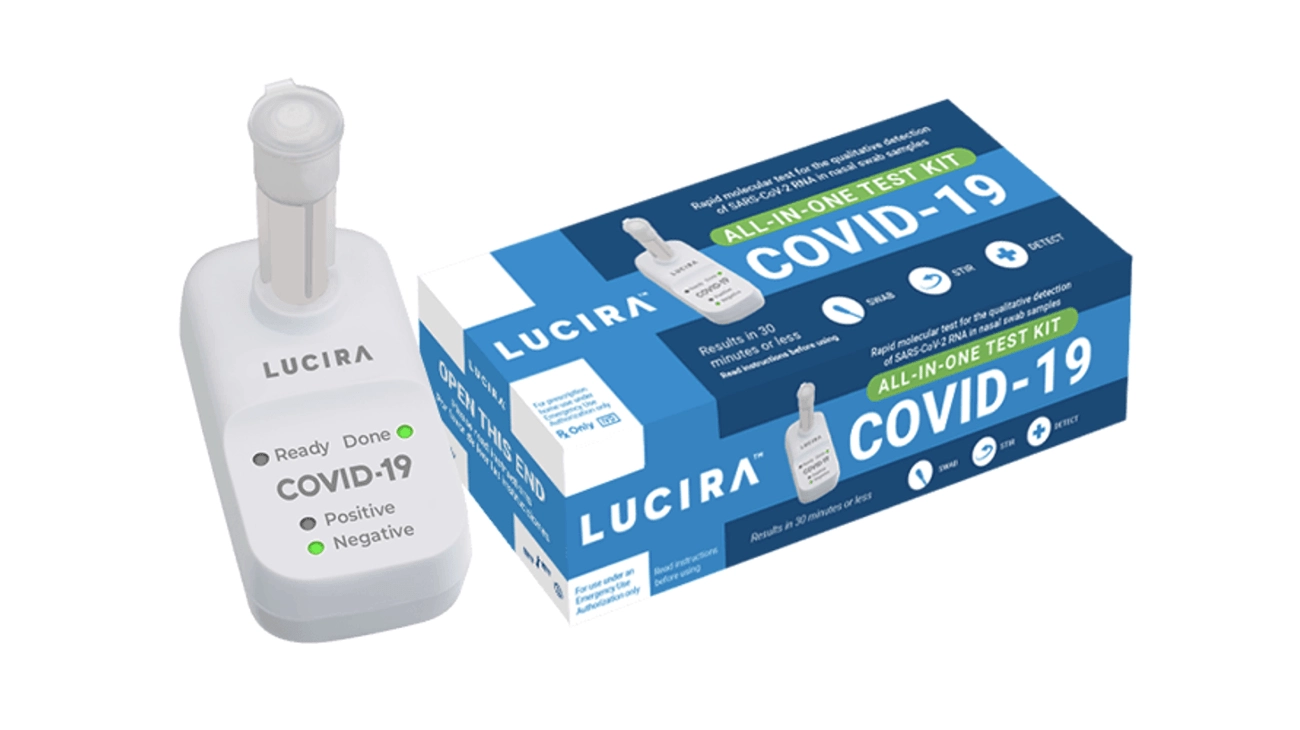

Digital healthcare digest — November 2020
Hey, we’re here to talk about the digital health industry: what are new launches and deals, who’s got funding, what’s happening in different areas of science, connected to digital healthcare, and so on.
But first, we’ll highlight the most exciting news: the DeepMind’s artificial intelligence learned to predict the protein folding in seconds — as a continuation of 50 years of research! That will speed up the drug development process and other biological research. Whoa. The fusion of technology and science is indeed amazing. Now, let’s move to the other (not less exciting) news.
New product and launches in the digital health industry
Spora Health launches to address and fix healthcare bias and disparities for Black people and people of color in America. It’s a primary care provider that has passed its $1.2M million round: they launched as a telemedicine provider, but plan to open physical locations soon.
Pear Therapeutic launched Somryst app, a cognitive-behavior therapy (CTB) tool that is proven to be efficient in treating insomnia: e.g., it reduces the amount of time it takes for people to fall asleep by 45%.
Olive Union creates dual-purpose hearing aids + wireless Bluetooth earbuds: AI in the device can isolate noises and enhance music, conversations, and, you know, your favorite show.
Amazon roots deeper in digital health, launching Amazon Pharmacy store (e-commerce + delivery services) and releasing a new feature for Alexa: their assistant now allows people to monitor how their grandfathers, grandmothers, and other seniors are doing.
Orexo, a Swedish pharmaceutical and digital therapeutic company, launches another app: vorvida, a solution for alcohol use disorder. It's based on CBT, and it’s released with the help of Accenture’s INTIENT Patient that is powered by Google Cloud.
Medtronic launches InPen, the only insulin pen FDA allowed to use for people who need multiple insulin injections. InPen is integrated with the Medtronic Guardian Connect glucose monitoring system.
Google Cloud launched new AI tools that will help healthcare analyze unstructured medical texts: Healthcare Natural Language API and AutoML Entity Extraction for Healthcare.
Health tech company 54gene from Lagos launched Clinical Research Programme Services (CPS), a new division that will provide all necessary clinical dev services, intelligence, logistics, and digital infrastructure to conduct clinical trials in Nigeria and then Africa.
Digital health startup funding in November
November is ripped with mental health startup funding (nine months of the pandemic it is.) Spring Health, one of the leaders in employee behavioral health, closed $76M in Series B (led by Tiger Global.)
Joon Care from Seattle gets $3.5M (led by 66 Ventures) for their app that connects young adults and teens to licensed youth-focused therapists.
Headway, a startup that helps people find therapists who accept insurance as payment, got $26M in Series A (co-led by Thrive and GV.)
Telemedicine is doing amazing, too: for instance, recently, Indonesian Alodoter raised funds from MDI Ventures as an extension of their $33M Series C last year. They connect 30k doctors and 1.5k hospitals to millions of Indonesians, and, apart from telemedicine, provide users with offline doctor booking, insurance, and educational services.
Navenio, a startup that’s called “Uber-for-indoors” — a patient transportation solution for patients to use inside hospitals, — raises $1.1M from Future Planet Capital.
Digital healthcare market news, deals, and partnerships
Digital health market’s diversity report from RockHealth. Some facts to reflect on: White and Asian founder respondents are more likely to receive venture capital than their Black, Hispanic, and Middle Eastern counterparts; 41% of Black founders bootstrap when less than 25% of White and Asian founders use that option; 2/3 of man-led startups are VC-backed, in comparison to 40% of women-led companies.

CBInsight previews investment trends from Q4 of 2020 — an early look at their research: and it seems that global healthcare & digital health funding does decline after a major record heat.
DocDoc, a virtual network of physicians and hospitals that navigates Singaporean patients towards high-quality medical care in Asia, partners with health tech provider SpesNet Global Group. They plan to integrate the latter's digital third party administrator technology into DocDoc’s HOPE, an AI for doctor discovery, and start offering insurers to use their ecosystem to reach out both to patients and providers. SpesNet Global Group’s offering is focused on safe and claims processing and employee benefits management services.
Signify Health, a digital health company, acquires PatientBox, a tech venture that facilitates contracts and payments in healthcare via blockchain. By the way, IBM believes blockchain technology might be a key to coronavirus vaccine distribution.
Health2Sync, a diabetes management company from Taiwan, and Daikyo Astage Incorporated, an apartment management company from Japan, partnered up to provide residents of DAIKYO ASTAGE apartments with health management services. Health2Sync, an app for chronic disease management, will launch for 1.1k households to provide their residents with health management recommendations, predictive analysis on their glucose levels, and so on.
Kaia Health from America partners with Chiesi Group, an Italian pharmaceutical company, to start commercializing Kaia’s app for rehabilitation from chronic obstructive pulmonary disease in Europe.
Novartis, a healthcare company from Switzerland, teams up with a smartpatient app to launch a new section called See What’s Next in MyTherapy app for patients with wet macular degeneration (AMD). It aims to teach patients and caregivers about care management in cases of AMD.
Talkspace, a digital mental health company, acquires an app for couple counseling called Lasting to start offering relationships therapy in addition to its one-on-one classic offering.
International cloud provider G-Core Labs started collaborating with Wagner Group to create a next-gen telemedicine platform called eConsult. It’s been mandated by the Luxembourgish government at the beginning of the pandemic. The solution is supposed to be the main virtual care delivery tool for Luxembourgian healthcare and population.
Medtronic, among other things, buys French AI — Mericrea — a solution with tools that help surgeons plan spinal surgeries and create customized & personalized implants. The deal highlights Medtronic’s intense focus on spinal care space; they’ll be integrating the technology into their Spine division that already comprises Mazor Robotics, Titan Spine, and other similar companies Medtronic acquired earlier.
Regulations and clearances in digital health
AliveCor gets FDA clearance for its set of interpretive ECG algorithms, right after their $65M Series E funding; their technology can capture sinus rhythm with premature ventricular contractions and other worrying things in cardio health to prevent and treat heart diseases.
Another (final-final-final-end) final version of HHS Rules is released. Long story short: they added changes to cybersecurity elements in the rules, recognizing the urgent risks of cyberthreats - they allow health systems and hospitals to donate cybersecurity technologies to provider’s offices, regardless of the business model they use (value-based or fee-for-service.) The additions create a safe harbor for cybersecurity technologies that can and should be developed to protect health systems in times of pandemics and further.
Security threat & data protection in digital health
NTreatment, a tech company that manages health records both for patients and doctors, forgot to protect one of their cloud servers on Microsoft Azure with a password, and 109k files, among which — thousands of lab results and medical records — were leaked online. None of the data, of course, has been encrypted. Sad.
Lookout, mobile cybersecurity specialists, released the 2020 Pharmaceutical Threat Report. You can read takeaways here, the main bad things being: the pandemic made all of us rely on digital tools, and digital tools were not secured enough not to become a major attraction for cybercriminals. Hopefully, that will be addressed soon. You can address it in your product. Check out our article on the most common cyberattacks in healthcare to find out how.
Recent phishing attacks used Google services to a) notify users that their password is expiring today and their account will be deleted if they won’t re-confirm it, b) pose as an American Express campaign that said user forgot to put some credit card info in when sending or receiving the latest package, c) used users’ colleagues’ names to increase legitimacy. So hey, be careful out there: 50% of phishing attacks don’t end up in the “Spam” folder.
Amnesty International is very concerned about the Fitbit-Google merger: they worry they will ignore people’s right to data privacy and are wary of possible data threats and surveillance, so they urge E.U. Commission to put a stop to a deal unless E.U. will create more definite, clear controls and safeguards for Google’s data-collecting operations.
Science and business research in digital healthcare
Research shows that Flow depression headset can, at least partially, tackle the UK’s lockdown depression—in particular, the loneliness of it all. Their therapy app features a chatbot therapist, a companion for isolated people; Chabot offers CBT which elevates the symptoms of depression and improves sleep. 81% of patients reported improvements after three weeks of using the Flow app & headset.
Check out large research from Google’s Alphabet’s X (for Christ’s sake) where they looked for biomarkers of depression, didn’t find them, but found new ways to measure mental health—and advance further studies in the field.
Fitbit measurements, combined with the Health2Sync platform, lead to better control and management of Type 2 diabetes.
New research from the Ohio State University Wexner Medical Center says brain games before surgery -- they’re called “neurobics” -- can prevent post-op delirium in older adults and seniors. The point is that by playing games people create new neural pathways and make the brain work more actively, processing post-surgery stress faster.
Now, digital solutions are a must for Medicare Advantage organizations; at least, MA members absolutely expect them to include them in their offering, according to Deloitte’s report.
Study shows: when pandemic ends, telehealth can keep its momentum by focusing on younger consumers who will be looking for a convenient, comfortable way to receive health assessments and advice.
Digital healthcare vs COVID-19
Out of clearances section, because of relations to pandemic: FDA authorized first COVID-19 test for self-testing. It’s nasal, it’s developed by Lucira, and it’ll be sold for about $50/kit.

Britain’s Technology Partnership Plc offers CoTest, a pooled screening device for coronavirus. It can be placed in any location, screen up to 40 people at once, and give the results in 30 minutes. The solution is a good fit for offices and schools.
MIT researchers came up with an AI model that detects COVID-19 by listening to coughs. They say it’s very accurate, in particular, 100% accurate with asymptomatic positive cases.
In the Netherlands, St. Antonius Hospital worked with Luscii, an e-health company, and developed a home monitoring solution for hospitalized COVID-19 patients, that allowed a reduction of 134 admission days per patient.
Other news in November 2020
College experience in 2020 is, well, not like any college experience, and it affects students heavily. The startup is called Mantra Health addresses college mental healthcare: recently, they officially launched the integrated Managed Care Program. Learn more about it here.
Moodbeam One, a wearable device to track mood, is being tested at a GP practice Amicus Health: trial being a product of the partnership between the health tech brand and Agencia’s Primary Care Direct. They want to track physicians’ burnout and state of mind, potentially in the whole of the UK.
Tell us about your project
Fill out the form or contact us

Tell us about your project
Thank you
Your submission is received and we will contact you soon
Follow us

